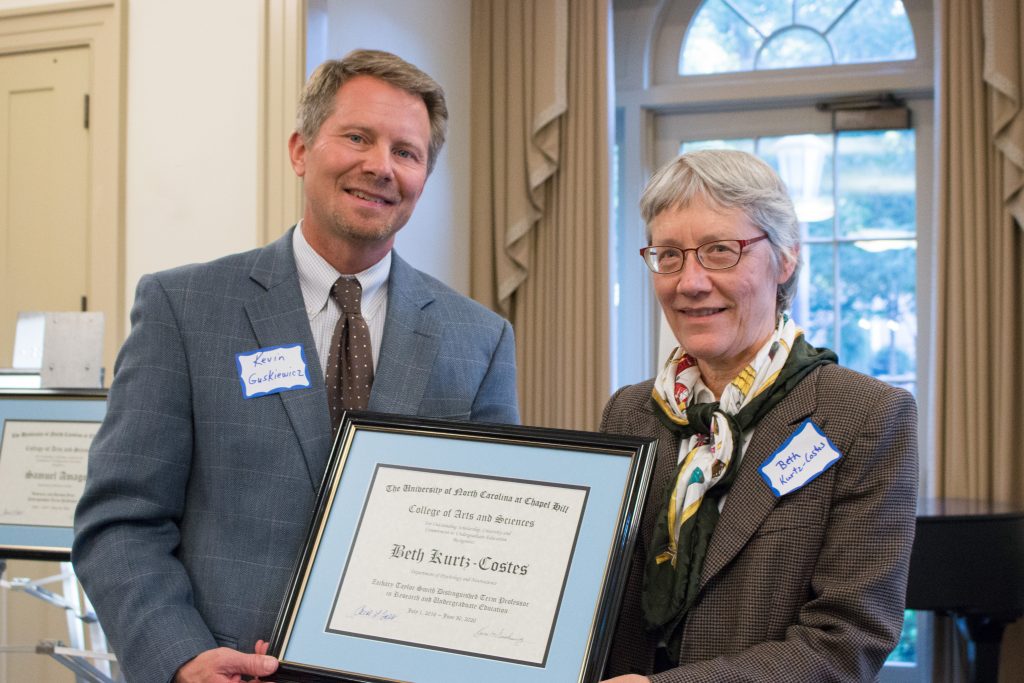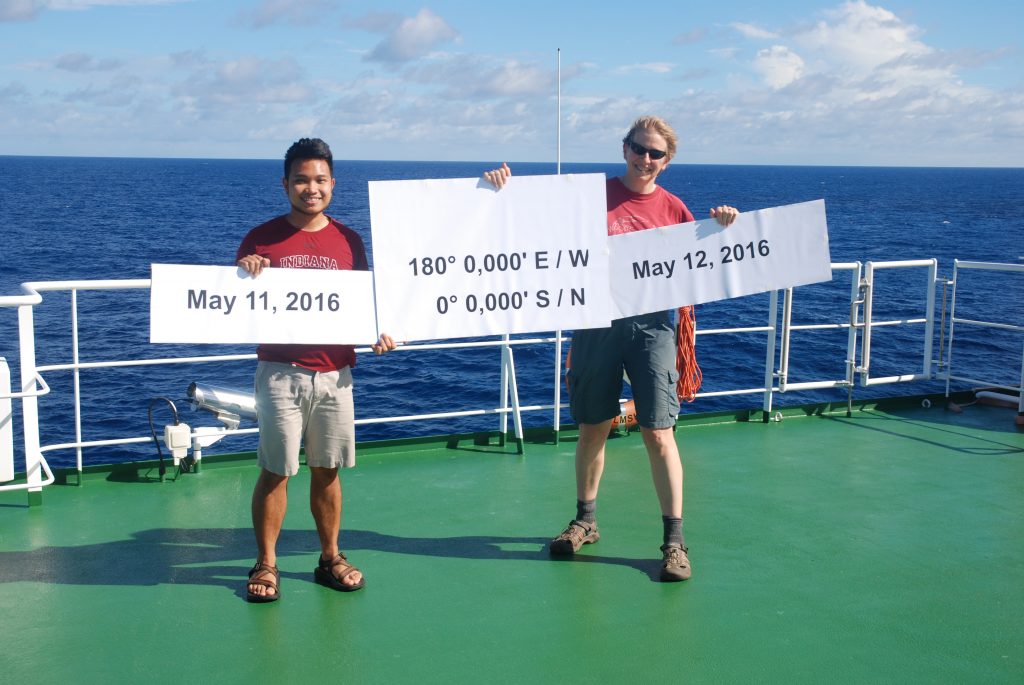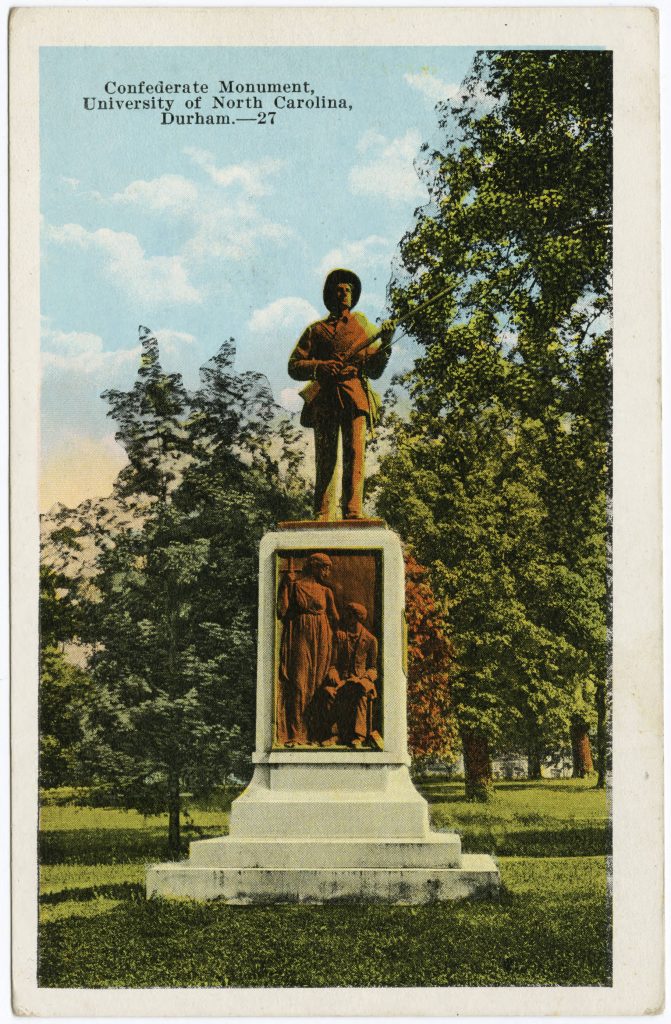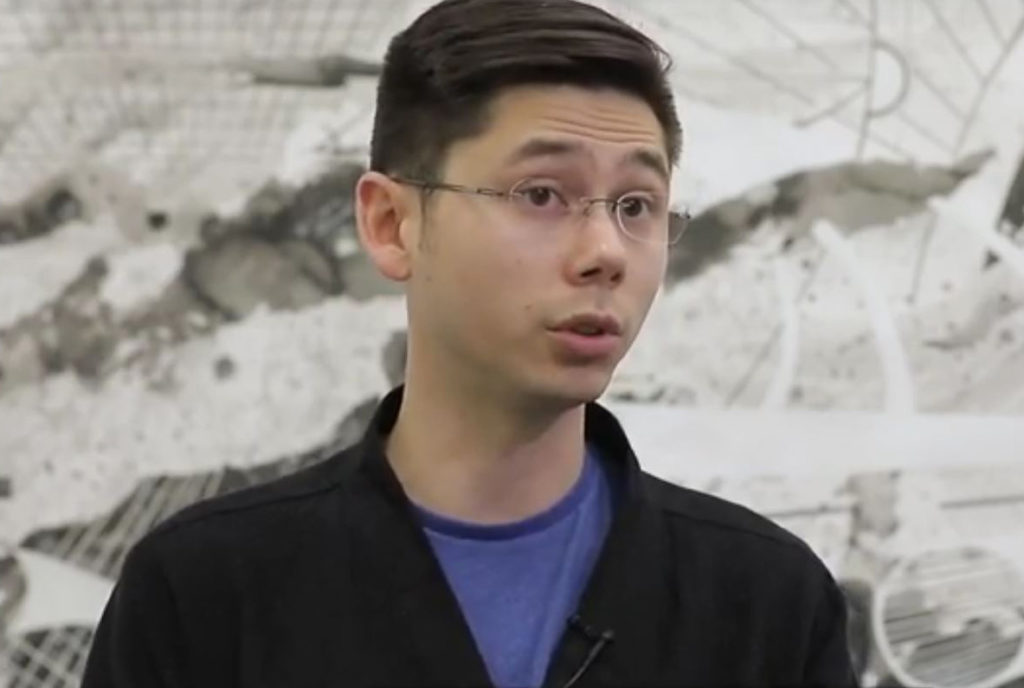
“Undergraduate students who conduct research receive notable gains — writing, speaking and leadership skills, intellectual curiosity, and the improved ability to acquire and analyze information.”
That’s how Troy Blackburn, associate dean for undergraduate research in the College of Arts & Sciences, opened the fifth annual Undergraduate Research Conference of the department of African, African American and diaspora studies on March 24.
The depth and breadth of student presentations at the conference reflected Blackburn’s remarks. Undergraduates shared their research and insights through individual presentations on four themed panels: “Health, History and Representation,” “Civil Rights, Black Power and Politics,” “Performing Research” and “In and Out of Africa.” AAAD faculty members moderated the panels.
This year’s Dunbar-Stone Lecture that opens the annual conference was delivered by Sen. Valerie Foushee, who majored in political science and Afro-American studies at UNC-Chapel Hill. She talked about being inspired as a student by beloved faculty member Sonja Haynes Stone. “With elegance and eloquence, [Dr. Stone] stirred up a desire not just to explore history and cultures but to begin to see myself in a different context … with a heightened awareness of injustice and inequality, I wanted to join with others to fight inequities.”
Kenneth Janken, AAAD professor and director of undergraduate studies, said that Foushee’s keynote address was a “testament to the value of a Carolina education and, in particular, the value of an education based in African and African American studies.” Janken has been a part of the annual conference since its beginning.

The inequities Foushee addressed include health disparities, which was the focus of Destinie Pittman’s research. Pittman, a senior double majoring in public policy and AAAD, presented on “Health Care Denied and Revived: 1896–1970.” She examined the forces underlying medical discrimination and the barriers to sustaining health care. ”Health is both a civil and a human right,” she said. “My research centers health care in the civil discourse in the South, particularly in the Mississippi Delta.”
Conference attendee Korene Gbozah, a sophomore majoring in biology, said the health care panel helped inform how she wants to practice and show respect to patients in her future career as a physician. “It really struck me when Destinie talked about a black man who had money to pay for his treatment but the doctor didn’t want to provide services to him,” she said. “The disrespect that black people had to go through, even when they were sick, stuck with me.”
Bailey Nelson explored the motivations of civil rights lawyers, particularly from the Southern Justice Institute (SJI), during the 1960s and 1970s, in her presentation. With little information about SJI online, Nelson utilized UNC’s Southern Historical Collection in Wilson Library.
Claude Clegg, Lyle V. Jones Distinguished Professor in AAAD and the department of history noted that it is critical that students learn to use a range of primary sources when conducting research
“It’s vitally important for young people to consult an array of evidence and sources to come up with their own conclusions, be able to make arguments about those conclusions and encounter other people’s arguments[through the lens] of their own research,” Clegg said. “And you need to be in the public square, at a conference like this, to do that.”
By Michele Lynn
Students, their research topics and AAAD faculty moderators are listed below:
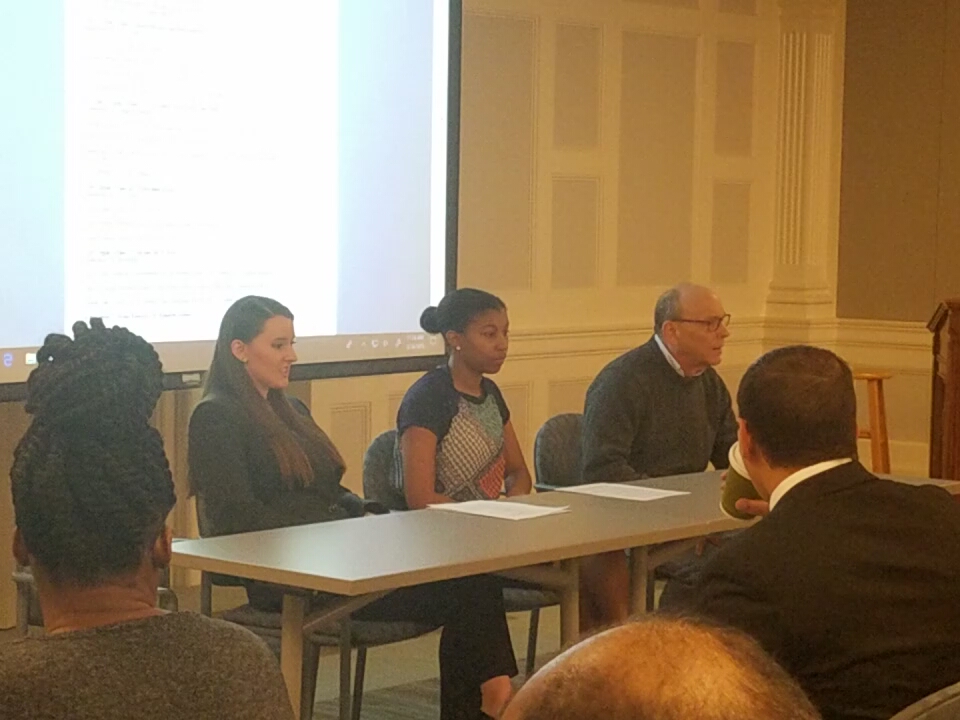
“Health, History and Representation” (moderator: Perry Hall)
- Jose Villard, “The Black Hospital Movement”
- Destinie Pittman, “Health Care Denied and Revised: 1896-1970”
- Julia Shankin, “Conveying Racist Ideologies in German Colonial Goods”
- Marissa Jamison Dorsey, “Germanin: The Nazis’ Use of Africa as a Background for Propaganda”
“Civil Rights, Black Power and Politics” (moderator: Kenneth Janken)
- Maxine Richmond, “Floyd B. McKissick, Leadership and the Evolution of Black Politics”
- Bailey Nelson, “More than Your Average Lawyer: Beyond the Call of Duty”
- Amukelani Muyanga, “Entrepreneurship and Economic Freedom in South Africa: Interrogating the Neoliberal Basis of the Structure-Agency Tension”
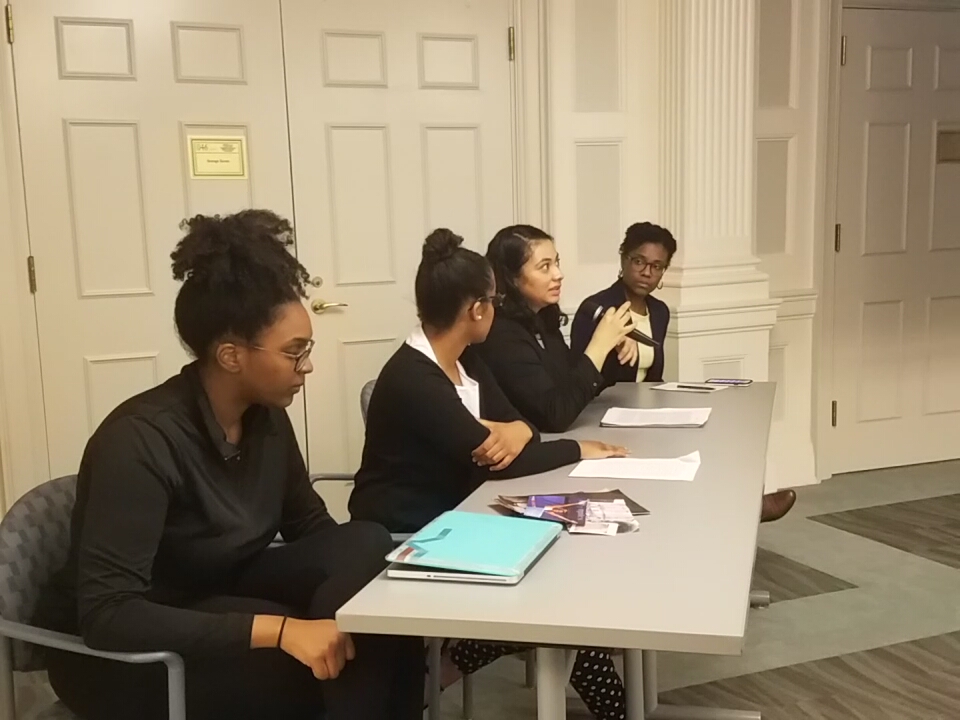
“Performing Research” (moderator: Maya Berry)
- Maria Gomez Flores, “Inclusivity in Latin Dance: Can I Dance with You?”
- Briana Humes, “Reflecting Inequality and Inequity through Performance”
- Chloe A. Brown, “Ballad of the Black Girl”
“In and Out of Africa” (moderator: David Pier)
- Emily Venturi, “Migration Management and Development Policy Issue-Linkage in EU-Senegal Relations”
- Anna McQuillin, “Situating Children within Human Rights Discourse: Intercountry Adoption in Africa”
- Angum Check, “The Power of Solidarity: Anti-Apartheid Activism on U.S. Campuses and UNC-Chapel Hill”

